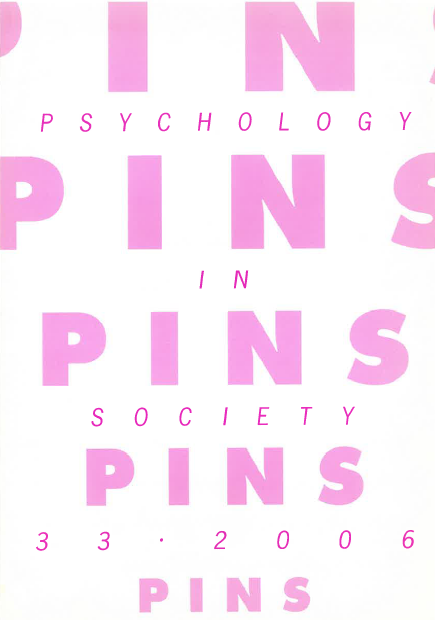QUALITATIVE RESEARCHING BEYOND TOOLS AND TECHNIQUES
DOI:
https://doi.org/10.17159//2309-8708/2006/n33a12Abstract
Henning, E with Van Rensburg, W & Smit, B (2004) Finding your way in qualitative research. Pretoria: Van Schaik. ISBN 0-627-02545-5 pbk. Pages 179.
Finding your way in qualitative research is not simply another qualitative research instruction manual offering tools, techniques and tricks for coding, or quick fixes for methodological mayhem. The text is aimed at social science students and researchers, and while it offers some how-to basics, it mainly claims to attend to “positioning” an investigation within epistemological, theoretical and design logics, and the practice of writing in qualitative inquiry. As its title suggests, finding your way, the text itself is conceived to work inductively to scaffold qualitative inquiry as a process, culminating in “qualitative research design” - as positioned methodological argumentation in writing proposals or reports – in the concluding chapter. As such, Finding your way in qualitative research is situated within an illustrious genre of qualitative research texts attending to paradigmatically situated, in-depth processes of inquiry, design, argument and writing for particular “audiences” (e.g. Van Maanen, 1988; Kvale, 1996; Creswell, 1998; Silverman, 2000). These texts function primarily as overview portals through which other more specialized or applied qualitative methods may be hyperlinked at strategic moments, to fashion a design-concordant, convincing and defendable argument.
Downloads
Downloads
Published
How to Cite
Issue
Section
License
This journal is an open access journal, and the authors' and journal should be properly acknowledged, when works are cited.
Authors may use the publishers version for teaching purposes, in books, theses, dissertations, conferences and conference papers.
A copy of the authors’ publishers version may also be hosted on the following websites:
- Non-commercial personal homepage or blog.
- Institutional webpage.
- Authors Institutional Repository.
The following notice should accompany such a posting on the website: “This is an electronic version of an article published in PINS, Volume XXX, number XXX, pages XXX–XXX”, DOI. Authors should also supply a hyperlink to the original paper or indicate where the original paper (http://www.journals.ac.za/index.php/pins) may be found.
Authors publishers version, affiliated with the Stellenbosch University will be automatically deposited in the University’s’ Institutional Repository SUNScholar.
Articles as a whole, may not be re-published with another journal.
The copyright of the article(s) lies with the author(s).
The copyright of the journal lies with PINS-psychology in Society.
The following license applies:
Attribution CC BY-NC-ND 4.0 - https://creativecommons.org/licenses/by-nc-nd/4.0/

